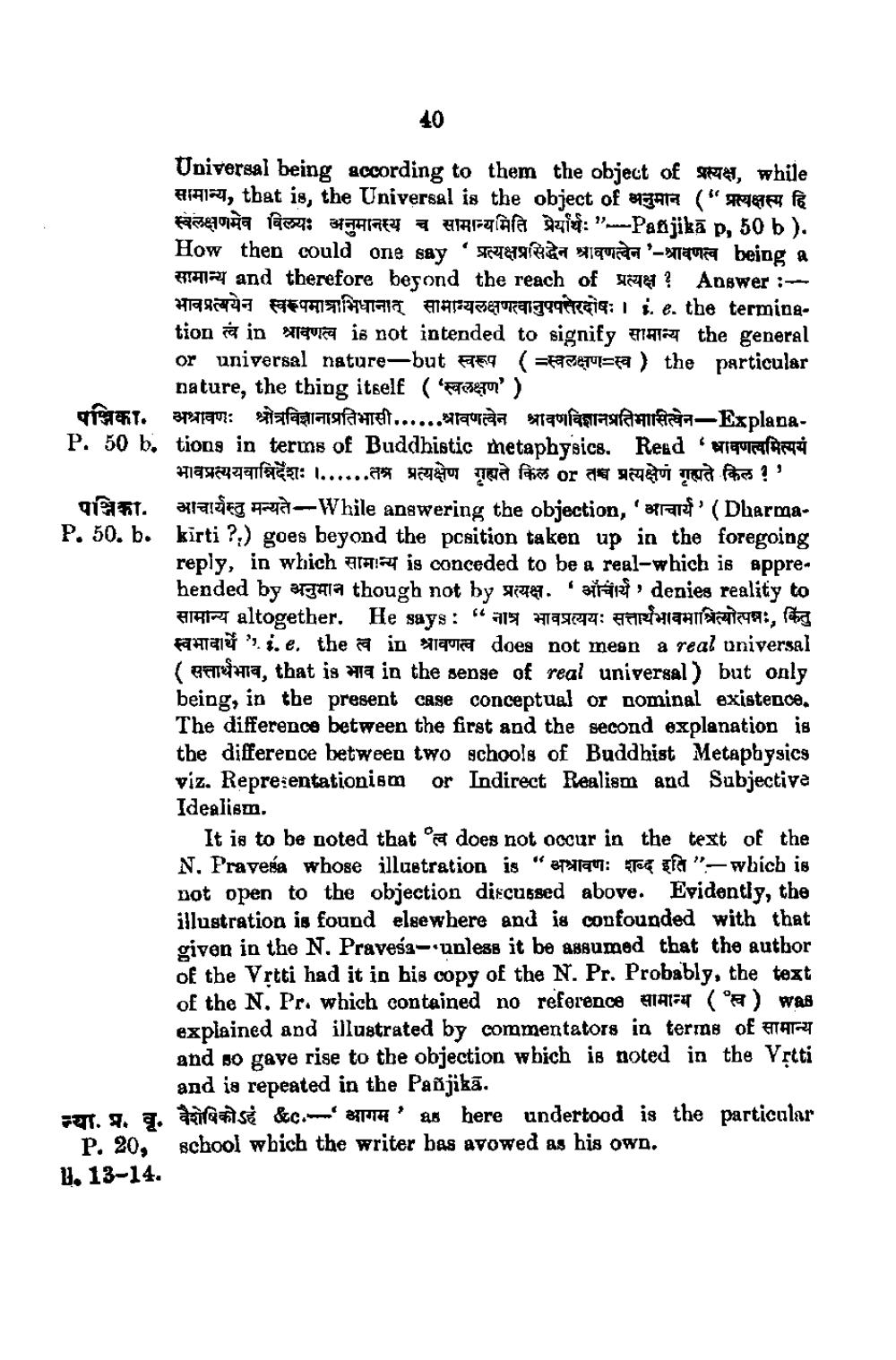________________
Universal being according to them the object of **, while सामान्य, that is, the Universal is the object of अनुमान (“ प्रत्यक्षस्य हि Freida lasa: 315Haey AFTlafa dia: "...Pasjikā p, 50 b ). How then could one say 'प्रत्यक्षप्रसिद्धेन श्रावणत्वेन '-श्रावणत्व being a
HRT and therefore beyond the reach of 4270? Answer: Hasta F412ATURIT 1914aa19TEI: I i.e. the termingtion na in pravica is not intended to signify HATE the general or universal nature-but स्वरूप (=स्वलक्षण-स्व) the particular
nature, the thing itself (nu) 1291. apatah lagi saatet...... a sollagataifa maa-ExplanaP. 50 b. tions in terms of Buddhistic metaphysics. Read "NILAR
Hiasaqqat: 1......675 240 paa fis or her appeto na fars?' Offt. Bladet FR-While answering the objection, arr' ( DharmaP. 50. b. kirti ?) goes beyond the position taken up in the foregoing
reply, in which amant is conceded to be a real-which is apprehended by अनुमान though not by प्रत्यक्ष. 'आचार्य , denies reality to FIRMA altogether. He says: "915 19944: ARANYA:, fete स्वभावार्थे ,i.e. the in श्रावणव does not meen a real universal (a ma, that is ha in the sense of real universal) but only being, in the present cage conceptual or nominal existence. The difference between the first and the second explanation is the difference between two schools of Buddhist Metaphysics viz, Reprezentationism or Indirect Realism and Subjectiva Idealism.
It is to be noted that a does not occur in the text of the N. Pravesa whose illustration is "aplau: To " which is not open to the objection discussed above. Evidently, the illustration is found elsewhere and is confounded with that given in the N. Pravesa- unless it be assumed that the author of the Vrtti had it in his copy of the N. Pr. Probably, the text of the N. Pr. which contained no reference 2014 () was explained and illustrated by commentators in terras of HTAT and so gave rise to the objection wbich is noted in the Vrtti
and is repeated in the Pañjikā. 31. 8. . His &c. ' BT:14 as here undertood is the particular
P. 20, school which the writer bas avowed as his own. 1. 13-14.




